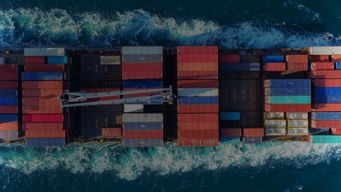The ongoing Iran–Israel conflict and the volatile situation in the Red Sea and Strait of Hormuz have intensified scrutiny of maritime risk zones. While the industry addresses insurance implications and routing strategies, a less discussed but critical concern lies in employment law and crew welfare.
The International Transport Workers’ Federation (ITF) has called for seafarers to have the right to refuse work transits through high-risk zones such as the Strait of Hormuz. This raises key legal questions for shipowners and charterers under employment contracts, particularly regarding the Maritime Labour Convention 2006 (MLC) obligations, flag state requirements, and ITF Collective Bargaining Agreements (CBAs).
High-risk zones: current classifications
As of July 2025, the Joint War Committee (JWC) lists the following as High-Risk Areas:
- Strait of Hormuz
- Bab el-Mandeb Strait / Southern Red Sea
- Gulf of Oman
- Parts of the Indian Ocean
These classifications trigger implications under war risk clauses, insurance premiums, and seafarer deployment protocols.
Employment law considerations
Right to refuse dangerous work:
The International Transport Workers’ Federation is urging maritime employers to provide for seafarers’ rights to refuse to enter the Strait of Hormuz and Israeli ports. The Federation has asked for the Strait of Hormuz, Gulf of Oman and Israeli ports to be designated as Warlike Operations Areas (WOA), which means seafarers have the right to refuse to enter these zones and to be repatriated without penalty.
Wages and risk premiums:
Seafarers who choose to work in a WOA and who are covered by an IBP agreement are typically entitled to double their basic pay, along with double compensation for death or disability. If the vessel proceeds through an area exposed to war risks, charterers may be obliged to reimburse to shipowners any additional premiums required by the shipowners’ insurers and the costs of any additional insurances that the shipowners require in connection with war risks.
Crew changes and repatriation:
Employers are under a duty to repatriate seafarers, whether they are employees or not, under the Maritime Labour Convention Minimum Requirement Regulations. If the vessel is required to reroute as a result of the conflict zones and leads to an extension of journey duration or expiration of the seafarers’ employment agreements, shipowners are obligated to facilitate the repatriation of the seafarers at no cost to them. Additionally, employers must repatriate seafarers who are no longer capable of performing their duties under their employment agreement or when it is unreasonable to expect them to do so, especially when the vessel is heading towards a war zone without the seafarer’s consent.
The Federation has asked for some of the High-Risk Areas to be designated as Warlike Operations Areas, which would mean seafarers could be repatriated without penalty.
Charterparty conflicts:
Charterparty conflicts may arise regarding the MLC obligations, particularly in relation to the working conditions and living conditions of seafarers entering the High-Risk Areas. Many charterparties anticipate this and contain an express war risks clause which gives the right to refuse to proceed or continue to or though any port or zone where it appears that the vessel may be exposed to war risks. In such cases, the cargo of the vessel may be discharged at any safe port, and typically the costs and expenses of doing so will be for the charterers’ account.
Proactive steps for operators
It’s essential that all parties take proactive steps to ensure they are aware of their rights and responsibilities when entering into High Risk Areas and WOAs, and being able to take immediate action to respond to an emerging risk or crisis is essential to mitigating risk.
Advice to shipowners/charterers:
- Update employment contracts to reflect risk zones and compensation.
- Communicate clearly with crew about routing and safety provisions.
- Ensure insurance (P&I and war risk) covers employment-related liabilities.
- Check for liberty clauses in maritime contracts which allows a vessel to deviate from the agreed route or contract terms under specific circumstances.
As tensions remain unpredictable, both commercial and employment-related risk assessments are essential. Shipowners and charterers will want to take steps now to ensure crew welfare remains at the forefront of operational decisions.



